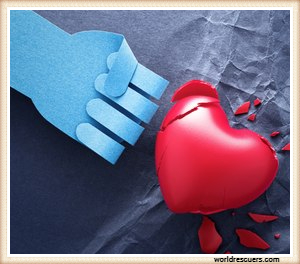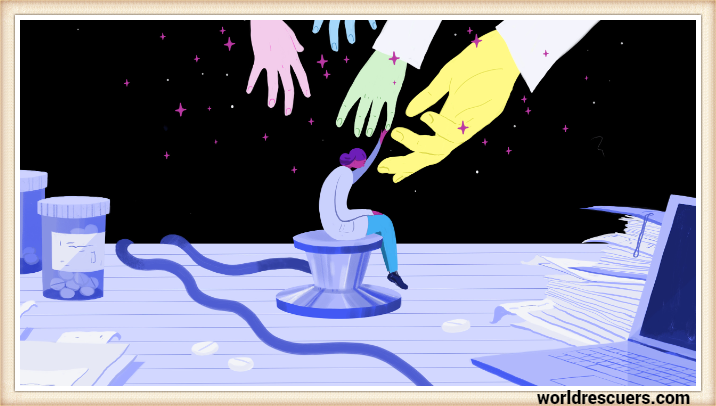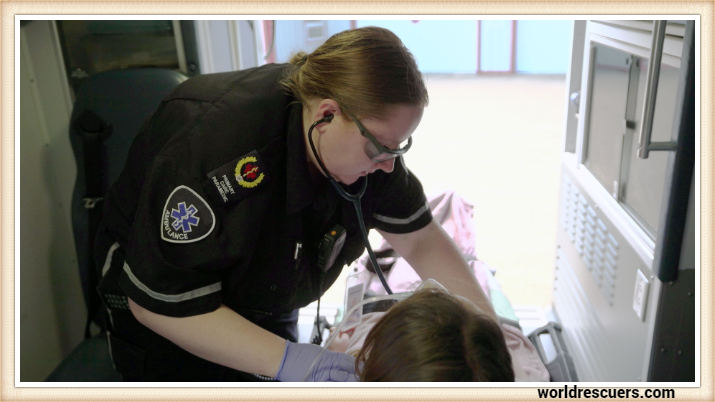
Summary
In conclusion, moral injury is a complex and significant concern among first responders. It arises from the ethical conflicts they encounter while fulfilling their duties to protect and serve. Recognizing the signs, providing support, and promoting open dialogue are essential steps toward addressing this issue effectively. By acknowledging and actively working to mitigate moral injury, we can ensure the mental and emotional well-being of our dedicated first responders, enabling them to continue their invaluable service to our communities.
In this article, we delve deep into the concept of “Moral Injury” and its profound impact on the mental and emotional well-being of our dedicated first responders. We explore the intricacies of this often-overlooked issue, shedding light on its causes, symptoms, and the crucial importance of addressing it within the first responder community.
Introduction
Moral injury, a term often associated with military personnel, has gained recognition as an equally pressing concern for first responders. The mental and emotional challenges faced by these brave individuals in the line of duty are immense, and moral injury is a significant component of this burden.

Defining Moral Injury
What is Moral Injury?
It is not a simple concept; it goes beyond the standard definitions of trauma or stress. It occurs when a person’s moral or ethical beliefs are violated or compromised in a way that leads to deep psychological distress. First responders, who frequently witness harrowing scenes of suffering and tragedy, can experience moral injury when they perceive their actions or inactions as ethically conflicting with their values.
Causes
Exposure to Unprecedented Stress
First responders often face situations where they must make life-altering decisions in the blink of an eye. These high-stress scenarios can lead to moral dilemmas, leaving responders questioning their actions and the consequences they carry.
Repeated Exposure to Trauma
The cumulative effect of repeatedly witnessing traumatic events can erode a responder’s sense of moral integrity. Over time, the sheer volume of distressing incidents can lead to moral injury.
Organizational Factors
Organizational factors such as inadequate support, a culture of silence, or a lack of mental health resources can exacerbate moral injury among first responders. It is essential for agencies to address these issues proactively.
Recognizing the Signs
Identifying moral injury is crucial for its management. Common signs and symptoms include:
- Guilt and Shame: First responders may carry an overwhelming sense of guilt or shame, believing they failed to uphold their moral values.
- Depression and Anxiety: The emotional toll of moral injury can manifest as depression and anxiety, affecting both work and personal life.
- Isolation: Many responders withdraw from their support networks, feeling isolated and unable to discuss their experiences.
The Impact on First Responders
Moral injury can have severe consequences on the well-being of first responders. Left unaddressed, it can lead to:
- Burnout: Responders may experience burnout due to the emotional strain, potentially affecting their ability to perform their duties effectively.
- Substance Abuse: Some responders turn to substance abuse as a coping mechanism, further compounding their problems.
Prevention and Support
Preventing moral injury begins with proper training and support systems. Agencies should provide ongoing mental health resources, encourage open communication, and offer debriefing sessions after challenging incidents.
Professional Help
Seeking professional counseling is essential for responders dealing with moral injury. Therapists trained in trauma and moral injury can provide invaluable support and guidance.
Peer Support Programs
Peer support programs within first responder organizations offer responders a safe space to share their experiences and feelings with colleagues who understand their unique challenges.
FAQ’s
What is an example of moral injury at work?
An example of moral injury at work could be a healthcare provider forced to withhold life-saving treatment due to bureaucratic constraints.
What is moral injury in everyday life?
Moral injury in everyday life can occur when a person experiences deep psychological distress due to actions or situations that conflict with their core moral or ethical values.
What is moral injury in the workplace?
Moral injury in the workplace refers to the emotional and psychological anguish employees may suffer when they perceive that their work duties or organizational actions violate their ethical principles or values.
Is moral injury a trauma trigger?
Yes, moral injury can act as a trauma trigger, rekindling distressing emotions and reactions linked to ethical conflicts or violations experienced in the past.
Highly trained Assistant Fire Chief dedicated to public safety and awareness for the past 16 years. Effective leader who remains steady during times of emergency, while directing and motivating team members throughout crises.


